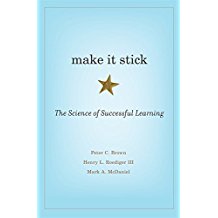What is 70:20:10?
70:20:10 is a reference model or framework that helps organisations extend their focus on learning and development beyond the classroom and course-based eLearning to build more resilient workforces and create cultures of continuous learning.
70:20:10 isn’t a ‘rule’. The model simply describes learning as it naturally happens and then offers means to accelerate and support that learning:
- as part of the daily workflow;
- through working and sharing with colleagues and experts;
- through structured development activities.
Why the Numbers?
Although the 70:20:10 model is primarily a change agent, the numbers serve as a useful reminder that most learning occurs in the workplace rather than in formal learning situations. It also stresses that learning is highly context dependent. However, don’t make the mistake of quoting the numbers as a mantra or as fixed percentages. Research over the past 40 years has shown that informal and workplace learning is increasingly pervasive and central to learning in organisations. Studies have produced varying figures of the amount learned in these ways[1]. Each organisational culture will display its own profile of workplace, social and structured development opportunities, and the distinctions between the ways of learning often blur.
It is important not to put the three elements in the 70:20:10 model into separate ‘boxes’ in practice. They are interdependent. For instance coaching, mentoring and courses work best when they support on-the-job development[2].
Re-thinking Learning
With its emphasis on learning through experience and with others, the 70:20:10 framework helps extend the understanding of what learning means within organisations. It also moves us from ‘know-what’ learning towards more effective ‘know-how’ learning.
In summary, 70:20:10 helps change mindsets and learning practices.
[1] 70% (Tough, 1971, 1979); 70% (Bruce, Aring, and Brand, 1998); 62% (Zemke, 1985 and Verespej, 1998); 70% (Vader, 1998); 85-90% (Raybold, 2000); 70% (Dobbs, 2000); 75% (Lloyd, 2000)
The 70:20:10 Primer by Charles Jenning is published here under the Creative Commons: Attribution – Non-Commercial – Share Alike Licence (CC BY-NC-SA 2.0 UK).


